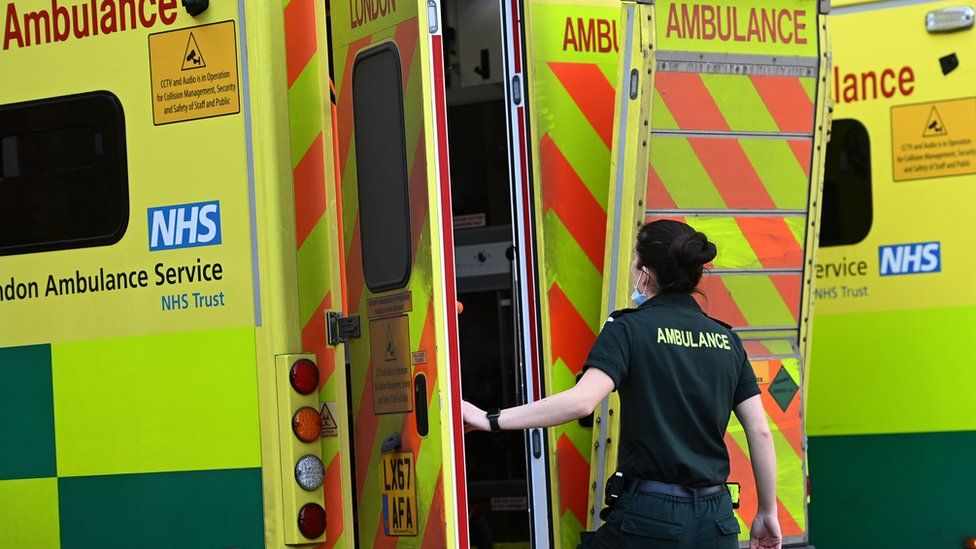ARTICLE AD BOX
 Image source, Shutterstock
Image source, Shutterstock
NHS England bosses have warned of "extensive disruption" ahead of ambulance strikes
By Michelle Roberts
Digital health editor
Tens of thousands of ambulance workers, including paramedics and call handlers, are set to strike in England and Wales on Wednesday over pay.
The impact upon services will vary by region, but extensive disruption is expected.
So, if you have an emergency on strike day, what should you do and what care can you expect?
What if I need to call 999?
If in need, do call. There will still be staff answering emergency calls and sending out some ambulances.
All Category 1 calls - classed as the most life-threatening situations, such as cardiac arrest - will be responded to by an ambulance.
However, conditions which are serious but not judged to be immediately life-threatening - which could include some people who may be having a stroke - might not be immediately attended to by emergency teams.
Some ambulance trusts have agreed exemptions with unions for specific incidents within this category - known as Category 2 calls.
Urgent problems that fit into Category 3 - such as a woman in late-stage labour - will not be prioritised.
Those who have a fall, or suffer other minor injuries which are not perceived to be life-threatening, are unlikely to receive 999 care. In such situations, some NHS trusts are urging people to use their own transport to get to hospital or take a taxi.
What about my GP or NHS 111?
Do still use these services for assistance. GPs and 111 call handlers are not striking, but bear in mind they are likely to be busy.
Pharmacies may also be able to provide help and advice for certain conditions.
How is the NHS preparing to protect patients?
Hospitals have already been asked to free up any beds they can, by discharging those patients who can safely leave.
It should help activity flow more smoothly in hospitals - and prevent bottlenecks.
For example, ambulances are sometimes forced to wait to handover their patients because there is no room inside the hospital. Health chiefs have asked hospital trusts to ensure measures are in place on Wednesday to enable all ambulances to handover patients no more than 15 minutes after arrival.
Is the army stepping in?
Troops from the Army, Navy and RAF will be deployed to alleviate the consequences of strike action.
Some 600 members of the armed forces are due to take on ambulance driving roles and 150 personnel will provide logistical support.
Community first responders will also be used to help manage demand for medical care.
Related Internet Links
The BBC is not responsible for the content of external sites.

 2 years ago
53
2 years ago
53








 English (US) ·
English (US) ·